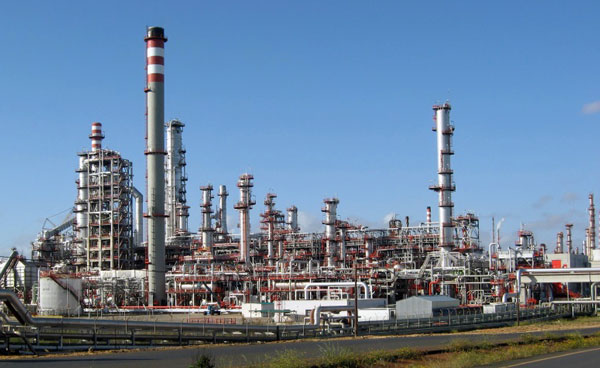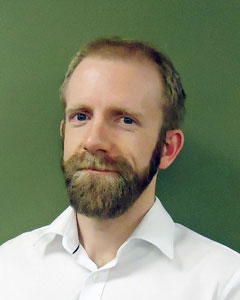|
|

|
|
|
|
The BETA Bulletin is our technical newsletter. It is geared to engineers and managers involved in projects, design or operations, including those involved in reliability and integrity. Our focus is on advanced vibration and dynamics issues affecting the piping system, pumps, compressors, foundations, and related topics.
We encourage your suggestions on how we can support you with relevant technical information and application support.
|
|
BETA provides a variety of training sessions. Some are managed internally and others are coordinated by the Gas Machinery Research Council (GMRC) and by PEICE. We regularly provide customized courses for interested clients on request and we also have a variety of free training videos and technical articles on our website.
| Course |
Host |
USA |
Canada |
| Reciprocating Compressor – Overview |
PEICE |
Houston |
Calgary |
| Reciprocating Compressor – Advanced Performance |
PEICE |
Houston |
Calgary |
| Compressor Station Vibration and the Impact on Performance, Cost, and Reliability |
GMRC |
Denver |
|
| High Speed Package Design |
GMRC |
Denver |
|
| Advanced Compressor Vibration: Techniques to Ensure High Reliability and Integrity |
BETA |
Houston |
Calgary |
| Piping Vibration: Avoiding Fatigue Failure |
BETA |
Houston |
Calgary |
| |
|
|
|
GMRC (3 day courses):
Title would go here (2 Days)
Calgary May 5, 2015
More Info |
Lorem ipsum dolor sit amet, consectetuer adipiscing elit, sed diam nonummy nibh euismod tincidunt ut laoreet dolore magna aliquam erat volutpat. |
Title would go here (2 Days)
Calgary May 5, 2015
More Info |
Lorem ipsum dolor sit amet, consectetuer adipiscing elit, sed diam nonummy nibh euismod tincidunt ut laoreet dolore magna aliquam erat volutpat. |
Title would go here (2 Days)
Calgary May 5, 2015
More Info |
Lorem ipsum dolor sit amet, consectetuer adipiscing elit, sed diam nonummy nibh euismod tincidunt ut laoreet dolore magna aliquam erat volutpat. |
This course focuses on vibration issues affecting compressor stations, including piping systems. Using a series of interactive case studies, participants gain an understanding of vibration issues and solutions at the design stage, as well as during commissioning and troubleshooting.
High Speed Package Design
- June 16 - 18, 2015 - Williams Tower - Houston, TX -
This workshop for operators provides procedures and references for selecting, specifying, procuring, applying, and operating high-speed units. It includes a comprehensive and detailed guideline for designing and building high-speed compressor packages that meet end user and equipment OEM expectations. BETA, along with four other reputable firms, are the instructors for this course.
PEICE presented by BETA:
Reciprocating Compressor – Overview (2 day)
– May 20-21, Sept. 21-22 Calgary and June 8-9, Nov 2-3 Houston --
This course is geared to anyone interested in learning more about reciprocating compressors, the work horses in the gas industry. Participants are provided with an overview of the operation and components of a reciprocating compressor.
Reciprocating Compressor – Advanced Performance (2 day)
– June 1-2, Sept. 23-24 Calgary and Nov 4-5 Houston –
This two day course is geared to professionals involved in assessing performance of reciprocating compressors. The course is based on actual case studies in which attendees actively engage in resolving problems using mathematical calculations. It is applicable for those involved in sizing compressors, and in troubleshooting problems.
BETA Courses:
Advanced Compressor Vibration: Techniques to Ensure High Reliability and Integrity (2 Days)
– May 5-6, Oct. 20-21 Calgary –
This class covers vibration, dynamics, torsional, surge, resonance, troubleshooting, and related integrity/reliability management. The first part of this course addresses key design concepts necessary to avoid resonance and dynamic-related problems. The second part is focused on field troubleshooting issues.
Piping Vibration: Avoiding Fatigue Failure (1 Day)
– May 7, Oct. 22 Calgary –
Vibration in process piping systems is a significant integrity issue. Recent piping failures have resulted in serious safety incidents, fires, spills, down time, and legal implications for operators. New guidelines and standards are now being used to mitigate and manage this risk. This course is aimed at engineers and technical managers responsible for piping and integrity issues and covers the new guidelines, as well as practical approaches used by global operators.
|
|
This is an update on some of BETA’s internally funded projects and those funded by the Gas Machinery Research Council (GMRC).
BETA Developments
this includes new products to solve vibration issues and new software capabilities that directly benefit our productivity (link to our R&D website).
Products
Pipe Clamp Designs for Vibration Service. BETA’s engineering has resulted in a portfolio of pipe clamps that are used in vibration loads and can address thermal issues as well. These field-proven clamps are now utilized on a wide range of projects.
Vibration Absorber. As a result of recent research, BETA offers this solution to address resonant vibration issues on existing compressors, pumps, and piping systems. Field testing is complete and the products are now being applied to challenging field issues.
Software
Asset Vibration Integrity Database This database, based on years of development, is used for facility-wide vibration assessments and Asset Integrity Management (AIM) Programs. Effective management of vibration risks requires this type of tool and BETA’s approach provides significant advantages for owners and operators during design, inspections, and operations.
Troubleshooting with DataMiner BETA developed a successful data mining processing tool to greatly improve the efficiency of a design project. Thousands of data points can be quickly assessed and evaluated to better understand vibration risks – saving owners and operators time and money (link to website page). Later in 2015 BETA will release Troubleshooting DataMiner, which provides the same benefits for field vibration data. This software eliminates weeks of post processing time and allows BETA’s analysts to quickly and more accurately pinpoint risk areas and problems.
Gas Machinery Research Council (GMRC): For more info, see their website or contact BETA.
Power Loss Through Compressor Systems. This project defines a new approach to accurately calculate the dynamic losses, and other important consideration when sizing a compressor.
Damping Solutions. Testing is complete and a number of new solutions are identified to help manage resonance and vibration.
Pipe Support Stiffness. Piping designs currently assume a “stiff” support. This project confirms that this is a poor assumption, and provides much more realistic stiffness assumptions for piping systems. These results will benefit all new piping designs.
Torsional Effect of Motor Magnetic Field. This project is defining a method to address the stiffness and damping due to the motor’s magnetic field.
Mechanical design for PAN system. BETA leads the design and testing for this significant project.
Other Research
For the API 688 committee, European Forum of Reciprocating Compressors (EFRC) and other standards groups, BETA is providing a draft standard for evaluating vibration on Small-Bore Connections. This builds on our field research program, and past technical work (link to EFRC technical paper; link to SBC page on website).
|
|
I keep hearing about fatigue failure in piping. Whose responsibility is it to prevent this issue for new compressor installations?
The ownership of vibration problems on process piping is a common issue for the plant owner. At the design stage, machinery packagers usually consider vibration within the skid or package boundaries and do not consider the effect of both mechanical and acoustic excitation forces on the connected piping. Numerous excitation mechanisms resulting from flow through the piping itself, such as turbulence and vortex shedding, are frequently ignored in the original piping design as only static loadings are considered.
At the operational stage, 20% of all hydrocarbon releases are due to fatigue failure, yet this issue is overlooked by integrity inspection programs that concentrate on corrosion and material degradation. If the rotating, static/piping, structural, and integrity disciplines are not working closely together, these potential design gaps can result in fatigue risks going unnoticed, leading to potentially catastrophic results.
Vibration is a plant-wide issue and can be managed using a risk-based approach. It is typically included as a design requirement in new plants and can be assessed on a plant-wide scale through the use of industry accepted guidelines such as the Energy Institute Avoidance of Vibration Induced Fatigue Failure (AVIFF) Guidelines.
 Beta Machinery Analysis (BETA) is increasingly working with the integrity disciplines in managing this issue and provides a program that easily integrates into owners’ existing integrity management plans to provide measurable reductions in fatigue risk. BETA’s program considers all excitation mechanisms across all areas of the plant to provide a complete solution to mitigate reliability and integrity vibration risks. Beta Machinery Analysis (BETA) is increasingly working with the integrity disciplines in managing this issue and provides a program that easily integrates into owners’ existing integrity management plans to provide measurable reductions in fatigue risk. BETA’s program considers all excitation mechanisms across all areas of the plant to provide a complete solution to mitigate reliability and integrity vibration risks.
More information on providing an integrated approach to managing vibration risks can be found on our website, https://vdn.woodplc.com/wiki/integrated-approach-to-manage-vibration-risks.
Paul Crowther, MEng, CEng, IMechE, is a Principal Engineer in BETA’s Vibration Integrity Group. Paul can be reached by email, pcrowther@vdn-es.woodplc.com, or by phone, 403-245-5666.
|
|
It is well known that in certain situations, a centrifugal compressor system could go into surge. What is less well known is why specific surge control valves and piping characteristics still allow severe surge events to occur, and how to best ensure these situations are properly addressed in a surge control design. BETA’s recent article, written by Kamal Botros and Kelly Eberle in the January-February 2015 issue of CompressorTech2 magazine provides an example of how incomplete analysis could result in costly surge events and the best way to prevent them.
Read more
|
|
BETA is pleased to announce two additions to its leadership team. The new personnel reflect BETA’s growing business in China and Southeast Asia, and its expanded services in piping vibration and integrity.
Andy Li, P.Eng. , B.Sc., General Manager China
 Andy Li (李嘉栋) is responsible for supporting BETA’s China customers including application support, project delivery, service delivery, and staffing. Andy will manage and support BETA’s business activities throughout China. His focus will be to help our customers achieve high reliability and integrity in their production assets, and avoid vibration and downtime related problems. Andy Li (李嘉栋) is responsible for supporting BETA’s China customers including application support, project delivery, service delivery, and staffing. Andy will manage and support BETA’s business activities throughout China. His focus will be to help our customers achieve high reliability and integrity in their production assets, and avoid vibration and downtime related problems.
Andy has a wealth of technical and application knowledge in the machinery and petroleum industry, both with onshore and offshore facilities. He has a strong technical background with compressors, engines, turbomachinery, and reliability. Li’s breadth of experience and leadership ensures timely response, knowledgeable support, and successful project execution.
For application questions or project support, Andy can be reached by email AndyLi@vdn-es.woodplc.com, or by phone +86 - 137 0107 8772.
Paul Crowther, MEng, CEng, IMechE, Principal Engineer
 Paul is a Technical Authority in BETA’s Vibration Integrity Group, which involves design, inspection, and consulting services related to static and transient piping vibration for onshore and offshore facilities. This includes requirements defined by the Energy Institute guideline (Avoidance of Vibration Induced Fatigue Failure), as well as many different advanced analysis services. Paul is a Technical Authority in BETA’s Vibration Integrity Group, which involves design, inspection, and consulting services related to static and transient piping vibration for onshore and offshore facilities. This includes requirements defined by the Energy Institute guideline (Avoidance of Vibration Induced Fatigue Failure), as well as many different advanced analysis services.
Paul is a Principal Engineer, with over 14 years of experience in advanced engineering analysis in Europe and the Middle East, where he has supervised large scale piping vibration projects. He is actively involved in industry committees, research, supervision and specialized engineering projects.
Paul is currently working in BETA’s Calgary office and will relocate to Malaysia in late 2015. For piping integrity questions, Paul can be reached by email, pcrowther@vdn-es.woodplc.com, or by phone, 403-245-5666.
Optimized Skid Design for Compressor Packages
This article, in the August/September 2014 issue of CompressorTech2 magazine was rated as one of the top ten downloaded articles in 2014. It highlights the issues involved in skid design for vibration-related loads (compressors and pumps). When designing a structural steel skid (baseplate) for a compressor or pump package, the design must balance stiffness, mass, and cost. High stiffness will help avoid alignment problems due to skid deflection during transportation and installation. Heavier skids tend to have lower overall vibrations, but can have high deflections when lifted. The challenge when optimizing the design is to know where steel can be added or removed to maximize the stiffness and minimize the costs.
Read the rest of the article
New on our website
BetaMachinery.com is now available in Chinese zh.BetaMachinery.com and Spanish es.BetaMachinery.com.
|
Training
See our training schedule for current offerings
Conferences and Tradeshows
May 19-21 Eastern Gas Compressor Roundtable, Pittsburgh, PA
August 23-26 ASCE Pipeline 2015, Baltimore, MD
September 15-17 Turbo/Pump Symposia, Houston, TX
October 4-7 Gas Machinery Research Council GMC, Austin, TX
November 5-6 Pump Symposium, Calgary, AB
|
h1 Font style test
h2 Font style test
h3 Font style test
h4 Font style test
h5 Font style test
h6 Font style test
|
|
|
|
|
|